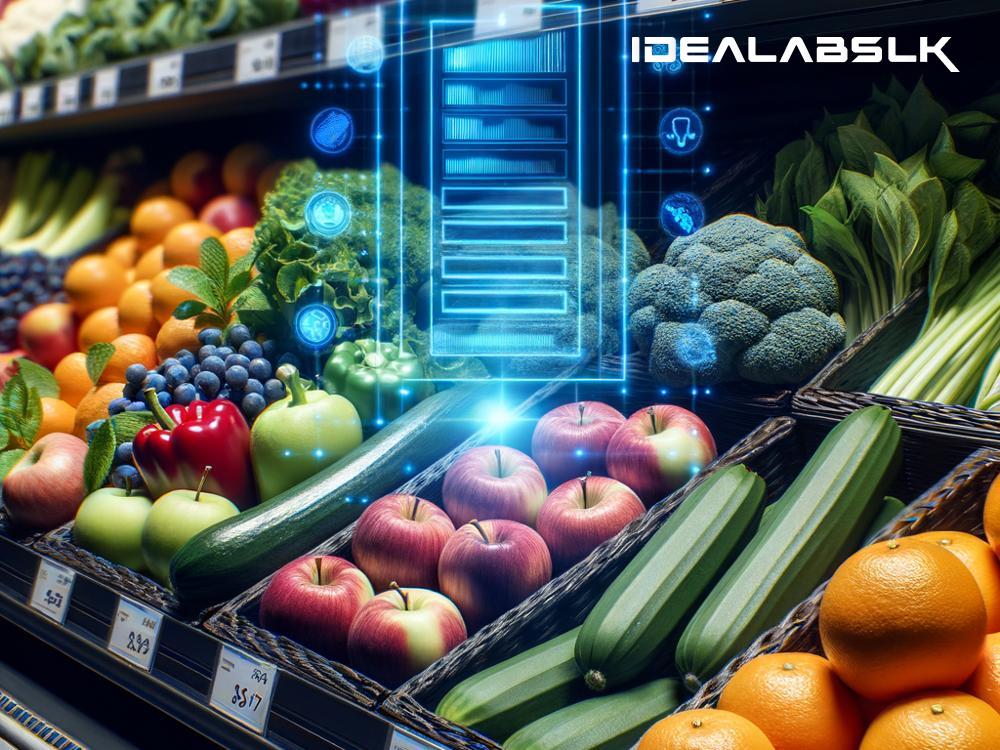How AI-Powered Sensors Can Tell if Your Food is Fresh
Have you ever wondered how awesome it would be if there was a magic wand to tell whether the apple you're about to eat is fresh or not? Well, the future isn't as far as it seems. Thanks to Artificial Intelligence (AI), that "magic wand" is becoming a reality with AI-powered sensors designed to detect food freshness in real-time. This breakthrough is not just cool tech; it has the potential to transform how we buy, store, and consume food. Let's dive into how this technology works and why it's so revolutionary.
Understanding AI-Powered Sensors
At the heart of this innovation are sensors equipped with AI technology. These aren't your average sensors; they can do much more than detect movement or measure temperature. AI-powered sensors are trained to recognize specific chemical signatures that food emits as it ages. Think of fruits releasing gases like ethylene as they ripen. The sensor picks up these signals and, using AI, interprets them to determine the food's freshness.
How They Work
Imagine a tiny, intelligent device that can smell and analyze the air around your food. That's essentially what these AI sensors do. They constantly monitor the environment for changes in chemical composition, humidity, and temperature - all factors that affect food's freshness. Once they detect certain gases or conditions that indicate spoilage, they process this data using AI algorithms to decide if the food is still good to eat.
The magic lies in the AI's ability to learn and improve over time. By analyzing vast amounts of data from different foods under various conditions, the AI models get smarter, making their freshness predictions more accurate.
Real-Time Monitoring
One of the coolest aspects of AI-powered sensors is their ability to provide real-time updates on food freshness. No more guessing if that steak in the fridge is still okay for tonight's dinner. These sensors can send alerts to your smartphone, letting you know it's time to consume certain items before they go bad. This immediate feedback loop can drastically reduce food waste, as people can consume or preserve food based on precise freshness data.
Applications and Impacts
The possibilities for AI-powered sensor technology are vast and varied. Here are a few examples:
-
Smart Refrigerators: Imagine a fridge that not only keeps your food cold but also tells you when something is about to spoil. This could revolutionize how we manage our food at home, saving money and reducing waste.
-
Supply Chain Optimization: In the food industry, knowing the exact freshness level of produce can streamline logistics, ensuring supermarkets receive and sell products while they're still fresh. This could lead to fresher food on shelves and less waste in the supply chain.
-
Quality Control: For food producers, these sensors offer a fast and reliable way to check the freshness of their products before they go to market. This could enhance quality control and ensure consumers always get the best products.
The Bigger Picture
What's truly exciting about AI-powered sensors for food freshness is their potential to tackle food waste - a massive global issue. According to the United Nations, about one-third of all food produced worldwide is wasted. This not only has economic and ethical implications but also contributes significantly to greenhouse gas emissions.
By accurately determining food freshness, consumers and businesses can make more informed decisions, ensuring food is consumed or processed before it goes bad. This could lead to significant reductions in food waste, with positive impacts on both the environment and the economy.
In Simple Terms
Think of AI-powered sensors as highly intelligent noses that can smell and analyze the air around food to tell you if it's fresh or not. They work in real-time, providing updates directly to your phone or device, helping you make better decisions about when to eat, sell, or buy food. This technology is not just about keeping your apples crisp; it's a step toward a more sustainable and waste-free future.
Conclusion
AI-powered sensors for detecting food freshness are a glimpse into a future where technology directly contributes to solving some of our most pressing global challenges. As these technologies continue to evolve and become more accessible, they have the potential to transform our relationship with food, making our consumption more sustainable and less wasteful. So, next time you're about to throw away food because you're not sure if it's still fresh, remember that the future might just have a smarter solution.

